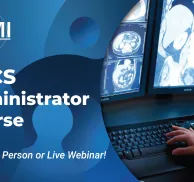Biomedical equipment technicians (BMETs), sometimes called biomedical engineering technologists, play an important role in effective patient care in a variety of healthcare settings. You may be unfamiliar with this important role, since it is not patient-facing and when BMETs perform their tasks well, you should hardly even notice them. So, what is a BMET and why are they so important?
What is a Biomedical Equipment Technician (BMET)?
A biomedical equipment technician (BMET) is an electromechanical technologist responsible for ensuring medical equipment is properly maintained and safe. BMETs influence buying decisions, install, configure, inspect, maintain, and repair biomedical equipment in hospitals, clinics, and private companies that utilize such equipment. In addition to the technical aspects of their job, they also educate and train fellow medical personnel on the safe operation of medical equipment. It is a subspeciality of biomedical engineering & healthcare.
Biomedical engineering was originally referred to as clinical engineering, and that's still the term used in many hospitals throughout the country. Some hospitals refer to it as biomedical engineering, while others still may use the term healthcare technology management. The field took off as a result of the space race of the fifties and sixties. Prior to this time, medicine and engineering were considered distinct disciplines with no crossover. That changed when we began putting people in space. How can you monitor an astronaut’s heart rate or respiration, for example? To do so required a serious marriage between engineering technology and medicine that resulted in what is now known as biomedical engineering.
Biomedical Engineers usually have a 4-year degree in electrical engineering or medical sciences and do more advanced service work dealing with networking issues, infrastructure, cyber security, incident investigations, power and HVAC issues.
Many medical facilities employ BMETs in-house, allowing them to maximize equipment uptime, safety and performance at the lowest possible cost. Due to the nature of their work, healthcare providers and their patients often can’t wait for an original equipment manufacturer (OEM) to come service and repair equipment.
What Does a Biomed Tech Do?
Depending on the kind of facility a BMET works for, their daily tasks can include:
- Preventive Maintenance: Test and calibrate medical devices, such as such as EKG machines and blood pressure monitors
- Corrective Maintenance: Troubleshoot and repair medical devices, such as MRIs, CTs, ultrasounds, and various imaging and scanning equipment
- Education: Train fellow medical staff on the proper use, care and maintenance of medical equipment
- Compliance: Ensure compliance with all regulatory processes
- Documentation: Maintain records of maintenance and repair activities
What is a CBET in Healthcare?
BMETs typically complete an associate degree in biomedical equipment technology, biomedical electronics technology, or biomedical engineering technology. The military can also provide a solid training ground for BMETs. While not a strict requirement, more BMETs are choosing to become a Certified Biomedical Equipment Technician (CBET) by gaining CBET Certification.
CBET Certification
The CBET exam is offered by The Association for the Advancement of Medical Instrumentation (AAMI), and successful completion of the program demonstrates a BMET has proven expertise in their field and a commitment to continuing education. To qualify for the exam, candidates must meet the following criteria:
- Associate degree or higher in biomedical equipment technology and two years’ full-time BMET work experience; OR
- Completion of a U.S. military biomedical equipment technology program and two years’ full-time BMET work experience; OR
- Associate degree or higher in electronics technology and three years’ full-time BMET work experience; OR
- Four years’ full-time BMET work experience.
Though it is not a professional requirement for BMETs to earn this certification, medical facilities are increasingly seeking out candidates with the credential. According to Dr. Larry Fennigkoh, Biomedical Engineering Professor at the Milwaukee School of Engineering and an instructor for the biomedical equipment technician programs at the Medical Technology Management Institute (MTMI), there is a growing push in the profession to require CBET Certification. Many hiring professionals and managers understand the value of the credential and the effort it took to earn it. Therefore, all other factors being equal, BMETs with the CBET certification are much more likely to find and keep employment.
Why Are Biomedical Technicians Important in Healthcare?
The vitally important role biomedical technicians play in healthcare cannot be overstated. All of healthcare has become incredibly dependent on technology, and when medical equipment is not working properly it can cause a tremendous amount of chaos, medical errors, and in worst-case scenarios, injury and death. BMETs employed in-house develop a real sense of loyalty and commitment to their jobs and their patients, recognizing the central role they play in patient care despite not being patient-facing.
Patient-Side vs Facility-Side
According to Dr. Fennigkoh, “the more effective and efficient a biomed group is, the more invisible they become to the administrators.” Essentially, “that’s the indirect measure of how well you’re doing.” But that doesn’t mean they aren’t impacting the day-to-day workings of a medical facility on both the patient-side and the facility-side – quite the contrary.
On the patient side, BMETs are the reason patients can be confident that the equipment used in their care is safe and will function the way it should. Clinicians and patients both need to have faith that the biomed tech responsible for the maintenance and upkeep of the medical equipment has done their due diligence. You can’t have infusion pumps overmedicating patients.
On the facility side, BMETs are responsible for helping replace equipment. Biomed techs are best positioned to know about the vendor history with a particular manufacturer –
- How responsive are they?
- How reliable has their technology been?
- How cooperative has that vendor been with providing training, parts and services?
BMETs can provide administrators with invaluable insight that helps them make the best decision possible.
Uptime, Safety and Performance
One of the more obvious ways that BMETs affect the functioning of a medical facility is called “uptime.” This refers to the percentage of time that equipment is up and operational.
According to Curt Bush, Vice President Houston Market Touchstone Imaging, being able to “guarantee 90-97% uptime and then follow through is essential, not only to the functioning of the facility but also for following regulatory standards.” It also impacts how certain BMETs are paid, depending on whether they are in-house or independent contractors.
Having skilled in-house biomed techs helps maximize uptime, safety and performance at the lowest, reasonable cost possible. That way, you don’t have to contact an OEM and wait potentially two or three days to have an issue addressed. Oftentimes, healthcare providers and their patients cannot wait days for equipment to be back up and operational.
Another way in-house BMETs can increase uptime is that many facilities will have an inventory of frequently replaceable parts on hand. Having both the parts readily available and the technically trained staff on-site to replace them maximizes uptime and keeps the response time as low as possible. Skilled biomed techs who perform preventive maintenance can also predict when things are likely to fail and order new parts in advance of it becoming an issue.
Image Quality
Much of the equipment that BMETs are responsible for are involved in imaging, such as MRIs, CT scans, and ultrasound machines. Keeping this equipment in optimal condition is vital to clinicians’ ability to provide proper diagnosis and treatment to patients.
One aspect of the quality of the images that biomed techs have direct influence over is the quality of the parts they use to make repairs. In-house BMETs have more control over what manufacturer’s parts are or aren’t used, based on their knowledge of the quality of those parts. An unskilled or third-party contractor may not select parts appropriately, causing potential damage to the equipment. Competent in-house biomed techs will know the best solution to keep image quality as high as possible.
Cost
As mentioned previously, there is a cost-savings benefit to employing in-house BMETs. That insider, high-level expertise allows administrators who purchase new or replacement equipment to make the best possible decisions, saving money on the bottom line. Biomed techs are able to provide the insider knowledge that allows them to make the best purchasing decisions going forward. But not all of the ways that biomed techs save their facilities money are as easily quantifiable.
Simply having a dedicated staff of BMETs on hand to avoid contracts with manufacturers can potentially save a medical facility hundreds of thousands of dollars every year. Having biomed tech staff on hand means that they can perform a job that would cost 10X or more to have a company come in and take care of it.
These savings can be harder to measure, however. For example, a medical facility might have a combination of brand-new, top of the line equipment alongside older machinery with a history of breakdowns, and they are responsible for keeping all of it functioning. The cost involved with having to find replacement parts (if they are even made anymore) can be daunting, and the downtime involved can be frustrating for all parties involved. This just further illustrates the importance of having knowledgeable biomed techs on-staff.
Training for Technicians
Whether you’re considering entering the field or looking to keep your biomedical technician skills sharp, MTMI offers a variety of continuing education programs. Recently launched is a new webinar series to help prepare for certification and to take your career to the next level: Essential Physiology & Anatomy for Biomed Technology and Fundamentals of Biomedical Equipment. MTMI programs are taught by experts with national reputations in their fields and cover every modality. Check out our full catalog of programs or contact us with questions today!






